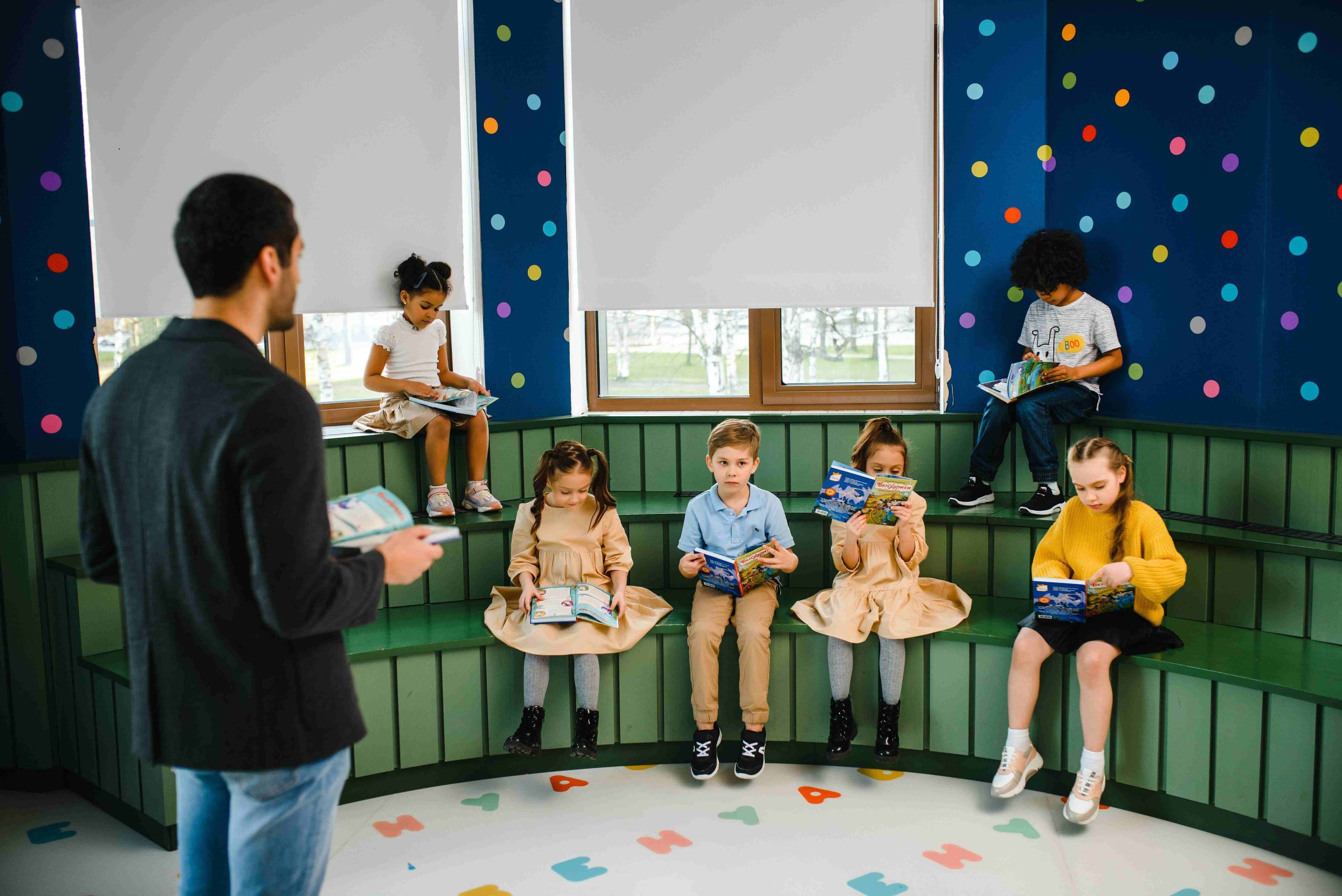
The Magic of Preschoolers Telling Stories: Unleashing Creativity and Imagination
As preschoolers grow and develop, they are constantly learning new things about the world around them. One of the most fascinating things to observe is how they develop language and begin to tell stories. From simple retellings of their day to complex narratives they invent from scratch, preschoolers are natural storytellers. But why is storytelling so important for their development? In this article, we will explore the magic of preschoolers telling stories and the benefits it can bring to their lives.
The Power of Imagination in Storytelling
Preschoolers have a limitless capacity for imagination, which makes them wonderful storytellers. They are not yet bound by the constraints of reality and can create worlds and characters that are truly magical. When a preschooler tells a story, they are not just recounting events that have happened – they are using their imaginations to create something new. This is a vital skill that will serve them well throughout their lives.
Imagination is the key to creativity, problem-solving and innovation. When preschoolers are encouraged to use their imaginations, they are more likely to come up with unique solutions to problems and think outside the box. Storytelling is a great way to foster this skill in preschoolers. By creating stories from their own imaginations, they learn how to think creatively and develop a rich inner world.
Developing Language Skills through Storytelling
Language development is another crucial aspect of preschoolers telling stories. As they learn to speak and communicate, they begin to understand the power of words and how to use them effectively. Storytelling is a fun and engaging way to develop these skills further.
When preschoolers tell stories, they have to use a range of language skills, such as vocabulary, grammar, and syntax. They learn how to construct sentences, use descriptive language, and convey meaning through their words. This not only helps them to become better communicators but also lays the foundations for reading and writing skills later on.
Building Confidence and Self-esteem through Storytelling
Another benefit of preschoolers telling stories is that it can help to build their confidence and self-esteem. When a child tells a story, they are the center of attention and have the opportunity to express themselves in a creative way. This can be incredibly empowering for them.
Furthermore, when preschoolers receive positive feedback on their stories, it can boost their self-esteem and encourage them to continue to develop their skills. They learn that their ideas and opinions are valued and that they have the ability to entertain and captivate an audience. This is a valuable lesson that can help them in all aspects of their lives, from school to social interactions.
Encouraging Empathy and Emotional Intelligence through Storytelling
Preschoolers are still learning how to navigate the complex world of emotions and relationships. Storytelling can be a valuable tool in developing empathy and emotional intelligence.
When preschoolers tell stories, they often include characters with different emotions and experiences. They learn how to put themselves in other people’s shoes and understand how they might be feeling. This can help them to develop empathy and a deeper understanding of the world around them.
Furthermore, when preschoolers tell stories about their own experiences, they learn how to express their emotions in a healthy and constructive way. They learn that it is okay to feel sad, angry, or frustrated and that it is important to share these feelings with others. This can help them to develop emotional intelligence and become more resilient in the face of life’s challenges.
Making Storytelling a Part of Everyday Life
So how can we encourage preschoolers to tell stories and reap the benefits of this magical activity? The key is to make storytelling a part of everyday life.
- Create a storytelling corner – Set up a cozy corner in your home with pillows, blankets, and books. Encourage your preschooler to curl up and tell stories in this special space.
- Use props and toys – Provide your preschooler with props and toys, such as dolls or stuffed animals, to act out their stories. This can help to spark their imaginations and make storytelling even more fun.
- Tell stories together – Take turns telling stories with your preschooler. This can be a great bonding experience and can help to inspire their creativity.
- Record their stories – Use a voice recorder or video camera to record your preschooler’s stories. This can be a great way to preserve their creativity and share it with others.
- Read stories together – Reading books together can also help to inspire your preschooler’s storytelling. Encourage them to retell the story in their own words or create their own version of the story.
The Role of Adults in Supporting Preschoolers’ Storytelling
As adults, we have an important role to play in supporting preschoolers’ storytelling.
- Listen actively – When your preschooler tells a story, listen actively and give them your full attention. Ask questions and show interest in what they are saying.
- Encourage creativity – Encourage your preschooler to use their imagination and be creative in their storytelling. Don’t be afraid to let them take the lead and come up with their own ideas.
- Provide feedback – Provide positive feedback on your preschooler’s stories and encourage them to keep telling stories. Offer constructive criticism when necessary, but be sure to focus on the positives as well.
- Model storytelling – Model storytelling by telling your own stories and sharing your own experiences with your preschooler. This can help to inspire them and show them that storytelling is an important and valuable activity.
- Make it fun – Above all, make storytelling fun! Encourage your preschooler to have fun with their stories and enjoy the process of creating and sharing them.


